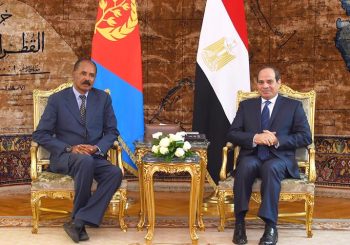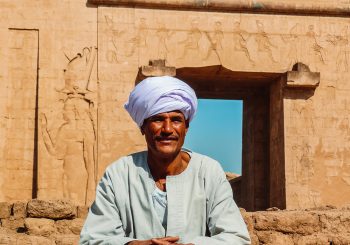The mindset of publicly rejecting particular beliefs wasn’t introduced for the first time when the new US president Donald Trump made an appearance in the political arena in 2015. He is being severely criticized and attacked for his visible racism.
However, the same policy of rejection and exclusion is currently present in the Middle East as well, and used to be common in Europe. Yet, no one bats an eye because the Middle East’s leaders don’t openly announce it.
Trump signed on Friday an executive order whereby he banned the entry of citizens from seven Muslim-majority countries in the Middle East for 90 days. He also suspended the US Refugee Admissions Systems for 120 days, with the Syrian Refugee Program suspended indefinitely. Trump argues that his executive order is not a Muslim ban, he also said that his order worked out “very nicely, turning a blind eye to the chaos that broke out in the streets and airports of the US.
The US president has explicitly voiced racism towards Muslims during his presidential campaign, vowing to ban their entrance to the US territories. Trump was severely criticized over his discriminatory statements and deviating from the political correctness altogether.
Trump depicts Islam as a violent religion that generates terrorism and vandalism, and he has been explicitly outspoken in his opinion. This may be the first president in the US to publicly display negative intentions towards minority groups.
“Christians in the Middle-East have been executed in large numbers. We cannot allow this horror to continue!”- Donald Trump , 29 January 2017
Following Trump’s claim that this is not a Muslim ban, he implied that Christian refugees could be privileged, taking the discussion to another level that involved sectarianism. He attacked the former US president Barack Obama as less than 1% of the Syrian Refugees who were admitted to the US last year were Christians. Overall, the US has a rather complicated Refugee Admissions System that takes 18 to 24 months, with backgrounds checks and interviews.
The Middle East follows in the footsteps of Trump’s mindset, it just won’t admit it
The favoritism of Christians and attempting to exclude Muslims is a policy adopted by Trump. In the Middle East, where there is no wide variety in terms of religious diversity with Islam being the dominant religion followed by Christianity and giving limited spaces for Judaism and other beliefs, the case isn’t very different.
The reasons behind the political turmoil that is sweeping over the Middle East can safely be attributed to religious conflicts. The two main players are Saudi Arabia and Iran, representing regional Sunni and Shia powers respectively, with Turkey and Egypt in the scene as well. Iraq, Syria, Yemen and Bahrain are all conflicts are based on one group attempting to exclude and perish the other one.
In Syria, president Bashar Al-Assad, backed by Iran is attempting to take over all areas held by the opposition backed by Saudi Arabia. The same goes to Yemen, as Iran backs the Shiite Houthi rebels and Saudi Arabia formed a military coalition to combat them. The coalition led by Saudi Arabia has killed thousands of Yemeni civilians, including children.
Saudi Arabia previously claimed that Houthi rebels fired a missile that was heading towards Mecca, an accusation that the former dwelt on for a long time to seek the support and sympathy of Sunni people after Iran managed to take significant steps forward in several afflicted countries.
The Middle East’s conflict is a religious conflict disguised as a political one, each one is attempting to exclude the other. But here comes the curious case of a country that is not actively engaged in the region, but keeps on making the most controversial decisions in the region, UAE.
The UAE’s foreign minister Abdullah Ben Zayed said on Tuesday that the travel ban decision taken by Trump is not Islamophobic and is not targeting any religion in particular. While the UAE is not among the countries in the travel ban list, Ben Zayed further added that the decision excluded most of the Muslim countries; hence, it is not about religion. Trump is believed to have chosen countries that he has limited or almost no business in. The US president has an active business in the UAE.
The lesson is repeating itself, the world just doesn’t seem to learn
Europe experienced a long chain of religious wars in its history, mainly between 1524 and 1648. However, the most significant of which is the 30 Years’ war that occurred in the 17th century. Although the war didn’t end up being a religious one but political, it was ignited by attempts of religious dominance and the exclusion of the other.
The 30 Years’ War is deemed as the bloodiest in Europe before World War l and ll, it was one of the longest wars and had deadly consequences after it concluded. The war that had a major religious aspect ended with about 20% of German population perished, the Catholics and protestants exhausted each other, however, none of them managed to demolish the other group.
Europe has already learnt that the exclusion policy finally hits a cul-de-sac, but the Middle East may follow in Europe’s steps and end up in a bloody war. According to history, both sides will miserably fail. The same goes for Trump’s exclusion policy.







Comments (0)